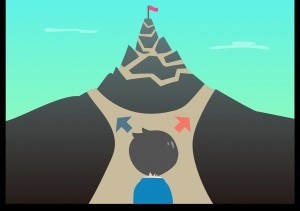Decision Making Best Practices Start the discussion!

What is Decision Making?
Decision making is the strategic process of making choices by collecting information and evaluating alternative solutions. It is a primary function of modern management roles to make rational and sound decisions. Decisions plays central roles as they establish both organizational and managerial activities. Indeed, a decision can be defined more precisely as a specific course of action purposefully selected from a set of alternatives to accomplish certain organizational or managerial objectives. Decision making is a continuous and dynamic activity which must be done in order to sustain the activities of all businesses and organizational functioning. Given that intellectual minds are implicated in decision making, it necessitates solid scientific knowledge in addition to skills and experience in mental maturity. Furthermore, the decision-making process is often regarded as a check and balance system which keeps the organization growing in both the linear and vertical direction.
In a management setting, it is essential that the process is not made abruptly or irrationally, but that it can also be done under pressure. The following steps of decision making indicate what the process should look like:
- Defining the problem
- Collecting data and information
- Developing and balancing the options
- Deciding upon the best possible solution
- Strategize and execute
- Take follow up action
The Different Types of Decision Making
Decisions can be made through either an intuitive or reasoned process, or a combination of the two.
Intuition:
Intuitive decision making can be most easily described as following your gut feeling about possible courses of action. Whilst this process may at first glance seem unjustified and somewhat ‘magical’, intuition is actually a combination of past experience and personal values. If you have a strong gut-feeling about making a particular decision, it is advisable that you ask yourself why this feeling is taking place, and whether this feeling is justified. This type of decision making tends to be better suited to simple decisions which needs to be made quickly.
Reasoning:
Reasoned decision making is the process using empirical facts and evidence to arrive at a particular choice. Reasoning is grounded in facts and the ‘here-and-now’ and tends to disregard emotional aspects surrounding the possible options. This type of decision making tends to be better suited to more complicated decisions which require a more formal and structured method.
Combining the two:
Another option is to combine the two processes. It is often useful to start by analysing the empirical facts and figures (rational) and then turn to intuition to assess how you feel about the decision. If it feels right, you know you have made the right decision. If something feels wrong, you should try and work out why it feels that way and possibly return to the data in question.
What Can Prevent Effective Decision Making?
- Not enough information
- Too much information
- Implicating too many people
- Vested interests
- Emotional attachments
- No emotional attachment



